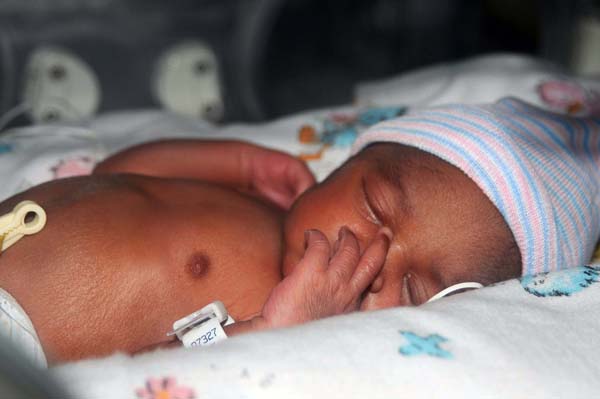A new study suggests that Zika virus infection in the first trimester of pregnancy, could result in a 13 percent risk of their child being born with the microcephaly birth defect. This number was calculated based on Zika infection and birth defect data collected in French Polynesia – which experienced an outbreak of Zika between 2013 and 2014 – and Brazil.
Cases of microcephaly – or children born with abnormally small heads – and Zika virus infection, have been on the rise in Brazil since 2015. Recently, the birth defect has been conclusively linked the virus, which is capable of crossing the placental barrier.
The study – which was published in the New England Journal Of Medicine – reported that women who become infected with the Zika virus beyond the first trimester, have a very low risk of giving birth to a baby with microcephaly.
According to researchers from Harvard University and the Centers for Disease Control and Prevention (CDC), they found “a strong association between the risk of microcephaly and infection risk in the first trimester, [but] a negligible association in the second and third trimesters. Although much remains unknown about the effects of [Zika] infection during pregnancy, population-level data from French Polynesia and [Brazil] reveal a clear association between first-trimester [Zika] infection and microcephaly risk.”
The researchers reported an estimated risk between 0.88 to 13.2 percent of birth defects due to Zika infection, in the first trimester of pregnancy. In the US, microcephaly is a relatively uncommon birth defect, with just 0.02 to 0.12 percent of all infants displaying characteristics of the condition.
As there is currently no vaccine against the Zika virus, officials are urging pregnant women to avoid becoming infected. The Zika virus is spread by the Aedes aegypti, so individuals in affected areas are being warned to eliminate standing water and wear protective clothing.
Since the Zika outbreak began in Brazil in 2015, 1,271 infants have been born with microcephaly. This birth defect results in brain damage including developmental delays, hearing problems and vision loss.












Join or login to leave a comment
JOIN LOGIN